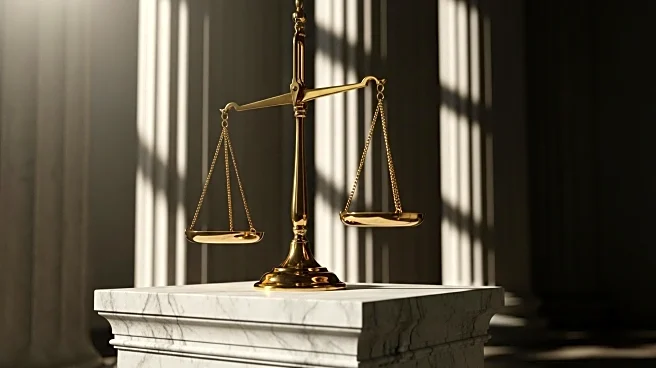What is the story about?
What's Happening?
The Supreme Court is currently facing significant scrutiny regarding its role in the balance of power between the executive branch and independent federal agencies. A case known as Trump v. Slaughter is at the forefront, questioning the president's authority to dismiss heads of independent agencies without cause. This case challenges the precedent set by the 1935 decision in Humphrey's Executor, which upheld limits on the president's ability to fire members of the Federal Trade Commission. Legal experts are concerned about the implications of this case, as it could potentially allow the president to exert greater control over federal agencies, effectively reshaping the government's structure.
Why It's Important?
The outcome of Trump v. Slaughter could have profound implications for the U.S. political landscape. If the Supreme Court overturns Humphrey's Executor, it would grant the president increased power over independent agencies, potentially undermining their autonomy. This shift could lead to a more centralized executive power, affecting how federal agencies operate and their ability to function independently of political influence. Such a change might alter the checks and balances that have been a cornerstone of U.S. governance, impacting public policy and the enforcement of regulations across various sectors.
What's Next?
The Supreme Court's decision in Trump v. Slaughter is anticipated to set a precedent for executive power over federal agencies. Legal analysts and political observers are closely monitoring the case, as its outcome could prompt legislative responses or further judicial challenges. Stakeholders, including lawmakers and civil society groups, may react by advocating for reforms to protect agency independence or by supporting increased executive control, depending on the ruling. The decision could also influence future appointments and the functioning of federal agencies, shaping the political and regulatory environment in the U.S.
Beyond the Headlines
The case raises ethical and legal questions about the balance of power in the U.S. government. It challenges the traditional separation of powers and could lead to a reevaluation of the role of federal agencies in safeguarding public interest. The potential shift towards a spoils system reminiscent of the 19th century could affect the integrity and impartiality of federal agencies, raising concerns about political favoritism and the erosion of merit-based governance.














